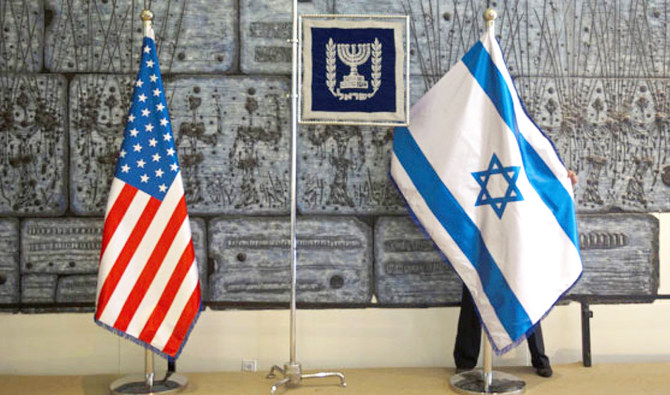AMMAN: Middle East experts believe that the visit of the US Secretary of Defense Lloyd Austin to Israel is largely aimed at deescalating Israeli-Iranian tensions, and facilitating Washington’s eventual rejoining of the Joint Comprehensive Plan of Action (JCPOA), commonly referred to as the Iran nuclear deal.
Austin said the US is committed to “Israeli military edge” and advancing “strategic partnership” efforts with Tel Aviv.
Lamis Andoni, a veteran analyst based in Amman, told Arab News that the visit is ultimately aimed at helping the US return to the JCPOA. “President Joe Biden is worried that (Israeli Prime Minister Benjamin) Netanyahu would like to escalate the situation in the Gulf, with the aim of torpedoing the eventual return to the Iran nuclear deal,” she said.
Andoni added that Netanyahu was only concerned about his own future, and would therefore focus on exaggerating Iranian threats to ensure Gulf states remained united against Iran.
Ali Jarbawi, a professor at Bir Zeit University, told Arab News that Austin’s visit was nothing more than an attempt to placate Israel.
“They want Israel to be reassured on the fact that the new administration will be returning to the Iran nuclear deal,” he said.
Retired Jordanian air force general, Maamoun Abu Nawwar, said that the goal of the visit is to ensure that Israeli does not escalate the situation in the Gulf. “The fact that the first senior official from the Biden administration to visit Israel is a military man is a clear sign that they are hoping he will address the potential of a dangerous escalation … between Israel and Iran,” he told Arab News.
Ofer Zalzberg, Middle East Program director at the Herbert Kelman Institute for Conflict Transformation, said that the visit will be characterized by an internal contradiction in US objectives: “It aims at reassuring Israel by bolstering US-Israeli and Gulf-Israeli defense relations while dispelling Iranian perceptions of US complicity in recent Israeli attacks on Iranian targets, which harm establishing the trust required for successful nuclear negotiations,” he said.
Musa Shteiwi, former head of the University of Jordan’s Center of Strategic Studies, said that the visit would seek to resolve the Iran issue at a time that Israel is going in the opposite direction. “They will talk about pursuing the partnership issue in order to facilitate the return to the Iran deal,” he said. Barak Ravid, a Tel Aviv-based reporter for Axios, argued that both Austin’s position and the timing of the visit were important.
“This is the first trip of a senior Biden administration official to Israel. Austin will try to make sure that there is a no surprises policy between Israel and the US when it comes to Iran, and will try to reassure the Israelis about the nuclear talks with Iran. The Biden administration wants to make sure tensions in the region will not escalate in a way that sabotages the nuclear talks,” he said.
Regardless of the worries about military escalation, it is clear to observers that the real issue is the political one. Abu Nawwar believes that the Iran nuclear deal, initially signed by the administration of former President Barack Obama, will eventually prevail. “It is the only game in town,” he added.
On Monday, Iran said it blames Israel for Sunday's incident at the Natanz nuclear site and will take its revenge, state TV quoted Foreign Minister Mohammad Javad Zarif as saying.
Iranian authorities described the incident a day earlier as an act of "nuclear terrorism" and said Tehran reserves the right to take action against the perpetrators.

























